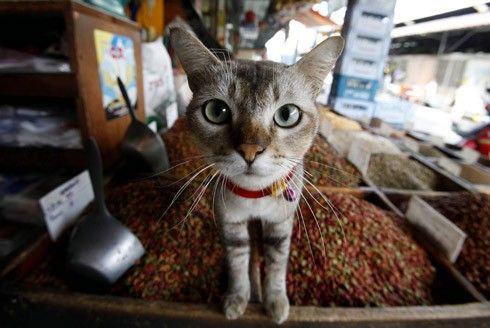5 Pet Dieting Mistakes You Might Be Making

Many pet owners are fond of giving their pets the best-tasting meals. However, it is not always recommended that pets eat the same food that their masters do.
Here are some common feeding mistakes that owners make.
1. Feeding raw food
Many owners believe that it is ideal to feed their pets raw food since it simulates the way animals naturally eat in the wild. The truth is, many raw meals are not complete with nutrients, vitamins and minerals, thereby making them prone to acquiring a number of diseases due to a weak immune system. A study conducted by the Food and Drug Administration (FDA) also showed that feeding raw food includes the risk of giving bacteria-rich sources for your pet that can lead to infection.
2. Feeding bones
Pet owners regularly give their cats and dogs bones to chew on. There have actually been plenty of cases where pets have splinters stuck in their throat or digestive tract. In more severe cases, the sharp points can puncture the stomach and intestines, causing lethal injury.
3. Giving multivitamins regularly
When feeding premium pet food, owners should know that these are already balanced and contain all the necessary vitamins and minerals to support their pet on a daily basis. Adding multivitamins can actually cause an imbalance or much of it may only be wasted. Talk to your vet and ask about the proper supplements to add or if you still need to add any based on your pet's current diet.
4. Giving them forbidden foods
There are several foods and ingredients that are actually prohibited to animals since these can cause gastrointestinal problems, allergic reactions and other more serious conditions. Some of the dangerous kitchen foods that owners feed their pets unknowingly include chocolates, garlic and very salty food. These can lead to symptoms like vomiting, diarrhea or constipation.
5. Feeding too often
Veterinarians recommend that pet owners schedule their pets' meals and avoid leaving a bowl of food throughout the day. This can lead pets to overeat and become obese over time. Also, making food available all the time might reduce the pet's appetite.





















